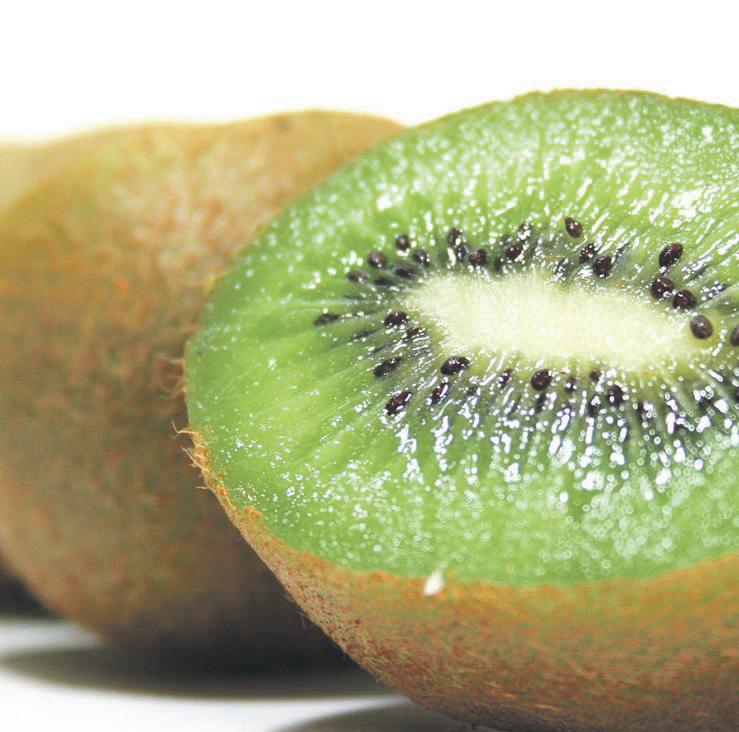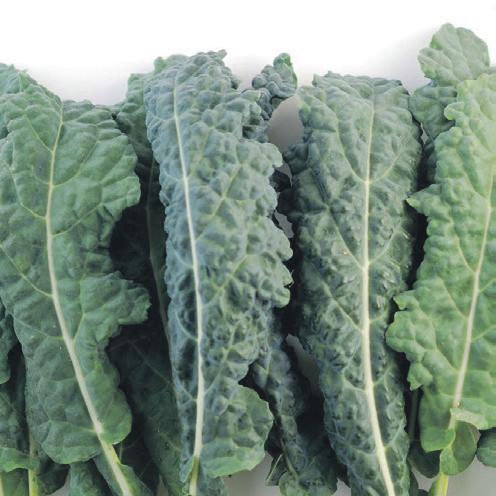
4 minute read
The green foods
from 2012-05 Sydney (1)
by Indian Link
Mum was right when she insisted that we eat our greens
BY GEETA kHuRANA
We have been advised since our childhood to eat our ‘greens’ and that these are beneficial to us, but even today less than 10% of us actually consume the required amount of green foods every day. The colour of green foods comes from the phytochemical chlorophyll which is the equivalent, in plants, of the oxygen-carrying red pigment haemoglobin in our red blood cells. They are a rich source of minerals (including iron, calcium, potassium, and magnesium) and vitamins like K, C, E, and many of the B vitamins. They also provide a variety of phytonutrients including beta-carotene, lutein and zeaxanthin. Here are a few green foods needed for good health. The list is endless - cucumber, bok choy, green apples, green olives, celery, chives, green grapes, green capsicums, etc.
BRuSSEL SPROuTS
Brussels sprouts are a part of the cruciferous family widely known for their health-promoting properties.


Brussels sprouts are an excellent source of vitamins C, E, K and B6 and contain phyto nutrients sulphoraphane and isothiocynates. They help reduce the risk of colon, prostrate and breast cancer.
Spinach
We grew up watching Popeye the Sailor man eat his spinach and gain instant strength. This leafy vegetable is a nutritional powerhouse and loaded with minerals and vitamins. Like other dark greens, spinach is an excellent source of beta-carotene. It possesses several important phytochemicals, including lutein, which helps prevent age-related macular degeneration. Spinach also contains lipoic acid, which helps antioxidant vitamins C and E regenerate. Served raw, it is a good source of vitamin C, another powerful antioxidant. Spinach leaves can be added to salads and also cut and added to chappati dough.

ASPARAG u S

Asparagus is a very good source of fibre, foliate, vitamins A, C, E and K, as well as chromium. Asparagus is packed with antioxidants, ranking among the top fruits and vegetables for its ability to neutralize cell-damaging free radicals.

Avocado

Avocado is a good source of monounsaturated fats and therefore helps in improving cholesterol levels by increasing the good cholesterol. Avocado contains vitamin B6 and folic acid, which help regulate homocysteine levels. A high level of homocysteine is associated with an increased risk of heart disease. Avocado is an excellent source of carotenoid lutein, which is known to help protect against agerelated macular degeneration and cataracts. Add avocados to salads, soups, tacos and sandwiches. However be careful to use only around half an avocado every day and not more, as these are quite high in calories.
Fresh Herbs
Fresh herbs have become a major food trend these days. But herbs not only provide flavour to our food, they also have many health properties. Basil is a good source of vitamin K and iron; fresh basil leaves boast anti-inflammatory and antibacterial properties. Add some leaves into salads and pasta. Basil and parsley are good sources of Vitamin C, while dill is a good source of betacarotene. Mint is well known for its soothing effect in digestive problems and stomach aches. Coriander mint chutney is an excellent substitute for
Seaweed
Seaweed, a Japanese cuisine mainstay, is gaining popularity because it’s chock-full of minerals. Seaweed is an excellent source of iodine and also has a fair amount of iron, vitamins C and A, potassium, magnesium and riboflavin. It can be added to vegetable dishes and miso soups.
Green Tea

Green tea is made from unfermented leaves. The Chinese have known about the medicinal benefits of green tea since ancient times, using it to treat everything from headache to depression. It is said that green tea has been used as a medicine in China for at least 4000 years. The secret of green tea lies in the fact that it is rich in catechin polyphenols, particularly epigallocatechin gallate (EGCG). Polyphenols are chemicals with antioxidant properties and EGCG is a very powerful antioxidant. Besides inhibiting the growth of cancer cells, it kills them without harming healthy tissues. EGCG is considered to be at least 100 times more effective than vitamin C and at least 25 times more effective than vitamin E.
k IWI FR u IT
Kiwi fruit contain a remarkable amount of vitamins C, E and A. Vitamin C is a water-soluble antioxidant that has been proven to protect our body from free radicals. It is also a good source of potassium and has a good amount of beta-carotene. The high content of fibre in kiwi helps to keep check on cholesterol and also helps relieve constipation. Slice some kiwi into your cereal, yogurt or salad for a refreshing health boost.

k ALE
Pakistan and Bangladesh. The green gram is soft in texture and does not produce flatulence as some other whole lentils. It is a good source of protein especially for vegetarians, and is low in fat. It is low GI and therefore good for diabetics too, if we do not add too much of oil via the tadka into it. Moong dal sprouts are an excellent source of vitamins C and A. The protein and iron in these is also much more. Added to salads, sandwiches and even paranthas, puris, fruit chaat and bhel puri could increase the nutritional value of these foods.

Kale is one of the cruciferous vegetables that help to fight cancer. It contains two powerful antioxidants - carotenoids and flavonoids that protect our cells from free radicals. The main flavonoids are kaempferol, lutein, zeaxanthin and beta-carotene, along with well-known antioxidants like vitamin C, vitamin A and manganese, making kale a powerful cruciferous vegetable. Kale is also a very good source of vitamin K which is necessary for the synthesis of osteocalcin, a protein that strengthens the composition of our bones. Vitamin K also prevents calcium build-up in our tissue that can lead to atherosclerosis, cardiovascular disease and stroke. Kale contains high levels of nutrients such as calcium, fibre, and iron.

Fennel
Fennel contains its own unique combination of phytonutrients, including the flavonoids rutin, quercitin, and various kaempferol glycosides, that give it strong antioxidant qualities. Fennel tea is known as one of the best and most effective natural aids for digestion. It can assist in avoiding upset stomach, getting rid of colic, bloating, abdominal and stomach cramps, relieving constipation and irritable bowel syndrome symptoms.










